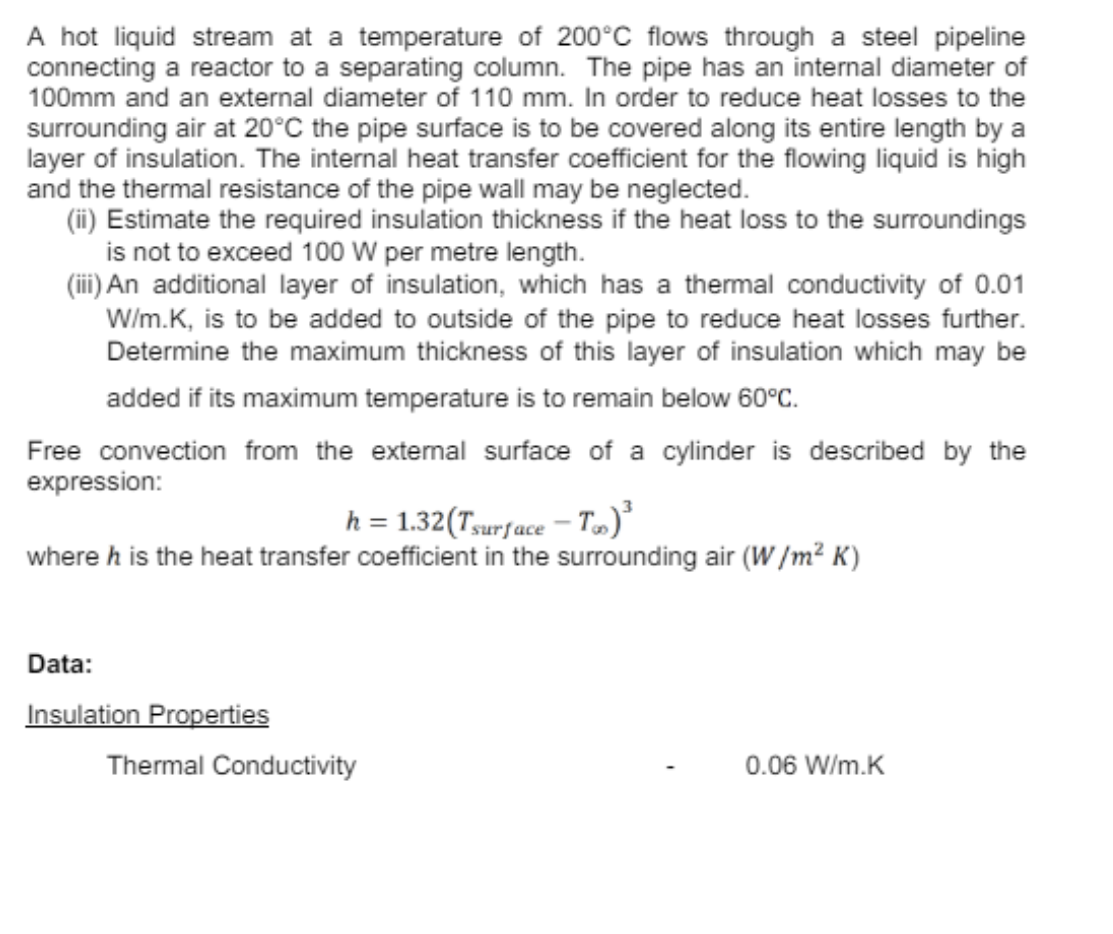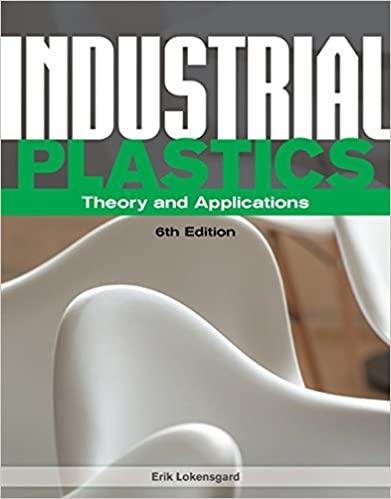Answered step by step
Verified Expert Solution
Question
1 Approved Answer
A hot liquid stream at a temperature of 2 0 0 C flows through a steel pipeline connecting a reactor to a separating column. The
A hot liquid stream at a temperature of flows through a steel pipeline
connecting a reactor to a separating column. The pipe has an internal diameter of
and an external diameter of In order to reduce heat losses to the
surrounding air at the pipe surface is to be covered along its entire length by a
layer of insulation. The internal heat transfer coefficient for the flowing liquid is high
and the thermal resistance of the pipe wall may be neglected.
ii Estimate the required insulation thickness if the heat loss to the surroundings
is not to exceed per metre length.
iii An additional layer of insulation, which has a thermal conductivity of
WmK is to be added to outside of the pipe to reduce heat losses further.
Determine the maximum thickness of this layer of insulation which may be
added if its maximum temperature is to remain below
Free convection from the extemal surface of a cylinder is described by the
expression:
where is the heat transfer coefficient in the surrounding air
Data:
Insulation Properties
Thermal Conductivity
A hot liquid stream at a temperature of deg C flows through a steel pipeline
connecting a reactor to a separating column. The pipe has an internal diameter of
mm and an external diameter of mm In order to reduce heat losses to the
surrounding air at deg C the pipe surface is to be covered along its entire length by a
layer of insulation. The internal heat transfer coefficient for the flowing liquid is high
and the thermal resistance of the pipe wall may be neglected.
ii Estimate the required insulation thickness if the heat loss to the surroundings
is not to exceed W per metre length.
iii An additional layer of insulation, which has a thermal conductivity of
WmK is to be added to outside of the pipe to reduce heat losses further.
Determine the maximum thickness of this layer of insulation which may be
added if its maximum temperature is to remain below

Step by Step Solution
There are 3 Steps involved in it
Step: 1

Get Instant Access to Expert-Tailored Solutions
See step-by-step solutions with expert insights and AI powered tools for academic success
Step: 2

Step: 3

Ace Your Homework with AI
Get the answers you need in no time with our AI-driven, step-by-step assistance
Get Started


